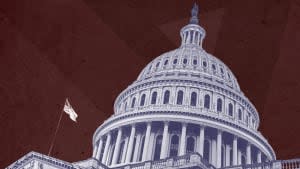A 55-vote filibuster won't unparalyze the Senate

If Democrats can't destroy the filibuster, can they at least lower the threshold for passing legislation to 55 votes? The idea has been floated by two prominent political columnists in recent days — Greg Sargent, a progressive writer for The Washington Post, and Ross Douthat, a conservative at The New York Times.
Sargent quoted Ira Shapiro, former counsel to the late Sen. Robert Byrd (D-W.Va.), who once supported lowering the filibuster from 67 votes to its current 60-vote threshold that has become standard for most Senate bills. Sen. Joe Manchin (D-W.Va.) could conceivably follow in his predecessor's steps by leading the charge to lower the standard by another five votes.
"His nightmare scenario was a paralyzed Senate," Shapiro said of Byrd. "He would have explored any possibility that allowed the Senate to get the work of the nation done. Lowering the threshold is consistent with what he's supported in the past."
Douthat agreed. "It adapts the filibuster in a reasonable way to our age of heightened polarization, maintaining protections for the minority, while making some deals that used to be possible available again," he wrote Sunday.
It sounds like a good idea, certainly better than leaving the current 60-vote rule in place. The problem is that it probably wouldn't work.
For one thing, Manchin has stated repeatedly that he won't vote to eliminate or weaken the filibuster — and did so again just a week ago in a newspaper op-ed. There's no two ways about it: Lowering the standard to 55 votes would weaken the filibuster. That's the whole point. It's difficult to see how Manchin could go along without breaking what appears to be an ironclad promise.
Even if he did, the Senate is still split 50-50 between Democrats and Republicans. And with few exceptions, Republicans are dedicated to denying Democrats anything that might appear to be a bipartisan victory. Perhaps one of the parties can muster a 55-vote vote majority during the next election cycle or two, but for now even a weakened filibuster would be too big an obstacle for Democrats to surmount in most cases. For now, then, the goal of un-paralyzing the Senate is probably just fantasy.
You may also like
7 scathingly funny cartoons about Democrats' Joe Manchin problem
Bernie Sanders wants to know if cannabis reporter is 'stoned' right now
Democrats are in danger of losing their advantage with minority voters. That's good for democracy.
